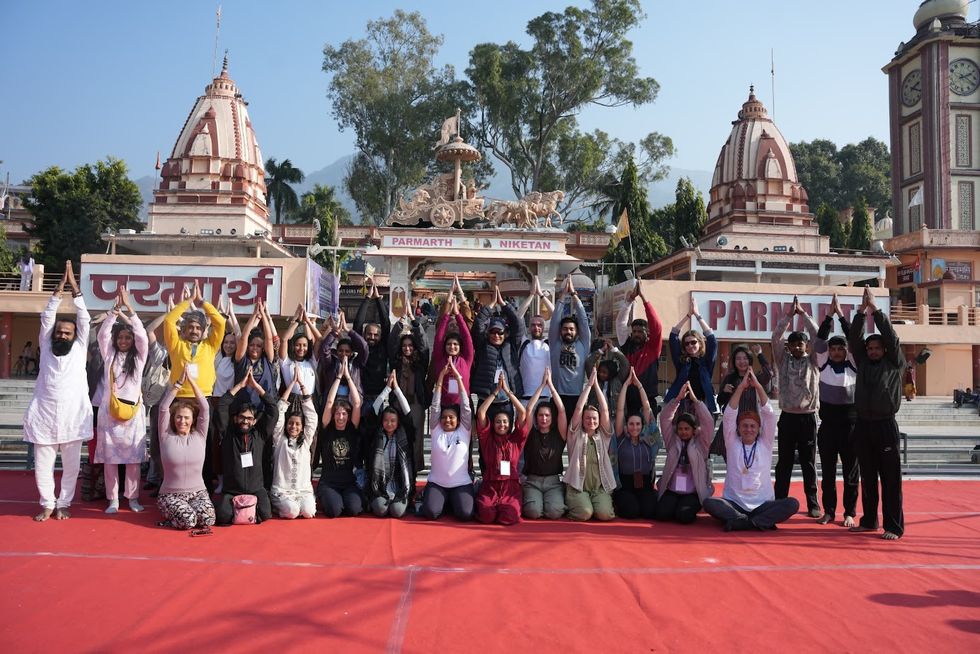PRITI PATEL has termed exploitation of workers a "modern-day scourge", after reports highlighted that thousands of people were working in modern slavery in the UK.
The home secretary's observations came as a new study said Britain was home to at least 100,000 modern slaves -- 10 times more than the official estimate.
Taking note of the Centre for Social Justice’s report on Monday (13), activists warned 90 per cent of the victims may be going undetected.
Patel said the report contained "important findings on modern slavery and the Home Office will be looking at it closely".
"While the Modern Slavery Act was ground-breaking in tackling this heinous crime, we are just getting started in the fight to rid this evil from the United Kingdom," she added.
The textile sector came under scrutiny, particularly in Leicester, after a coronavirus flare-up that forced the city into lockdown two weeks ago.
Factories that continued to operate at full capacity at the height of the outbreak were blamed for the surge in cases, although public health bodies said no single source was responsible.
But the spotlight on the city threw up fresh questions about unscrupulous practices and exploitation of garment factory workers, including low wages and poor conditions.
In Parliament, Patel was urged to do more to eradicate the "clear evidence of modern slavery in plain sight", citing examples of "hand car washes on the streets across Britain and in garment factories in Leicester".
Conservative chairman of the Environmental Audit Committee Philip Dunne asked if she would "commit to do all she can to work across government agencies to rid this scourge".
The home secretary said she "completely agreed" with the description of workers' exploitation as "a modern-day scourge", and called for better enforcement of existing legislation.
Patel added that local authorities had to do "much more in terms of stepping in and going in to investigate".
She also told House that a cross-government task force "will be on the ground... to absolutely ask the difficult questions of all institutions and organisations across Leicester with regards to this scourge that is taking place in the textile sector".
Campaigners have in recent weeks highlighted pressures on workers to stay on the job at textile factories in Leicester despite the outbreak, and wages well below the national minimum of £8.72 an hour.
Tory MP Andrew Bridgen, whose constituency is five miles (eight kilometres) from Leicester, estimated that the city's garment factories could count up to 10,000 victims of modern slavery, adding that he had been told wages could be as low as £2 per hour.
Those affected were a "mixture of local people and immigrant workers", and some were in the country illegally, making them ripe for exploitation, he said, citing whistleblowers.
Former Leicester Sikh Alliance chairman Raj Mann alleged that local authorities were aware that "these sweatshops exist for decades". However, he added, "they’ve been loath to do anything about it for fear of being accused of picking on immigrant or refugee communities, as a lot of the exploited workers are of Indian background".
"Within the Asian community people generally turn a blind eye to workers in the community who are on less than the minimum wage," he told Metro. "They see it as being better than earning nothing at all."
The Home Office, meanwhile, maintained it took allegations of modern slavery "extremely seriously" and was determined to bring the people responsible to book.
"The National Crime Agency and others are looking into the appalling allegations about sweatshops in Leicester and the home secretary has been clear that anyone profiting from slave labour will have nowhere to hide," a spokesman said.
Leicester, which has one of the country's most diverse populations, is thought to be home to at least 1,000 garment factories, supplying many leading clothing brands.
Shares in one of them, Boohoo, slumped last week on the back of allegations about exploitation, pushing the clothing group to launch a review of its UK supply chain.




















